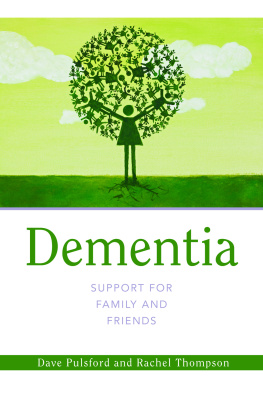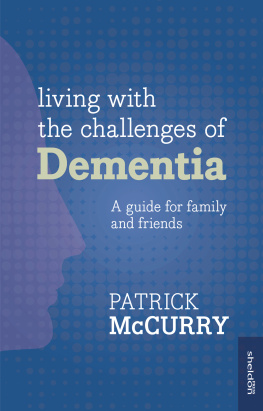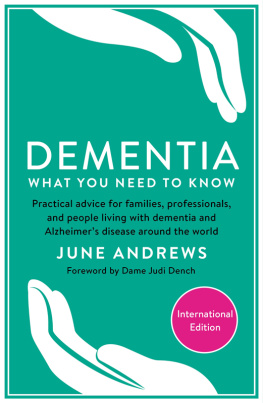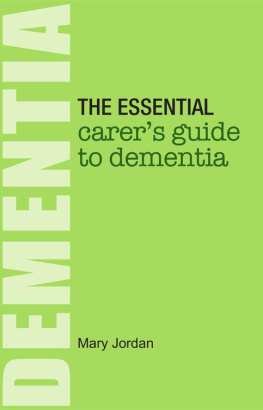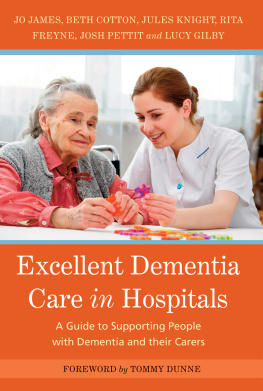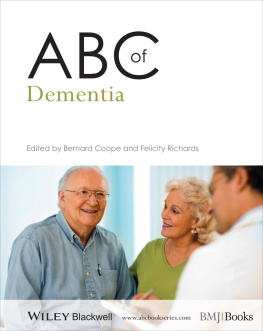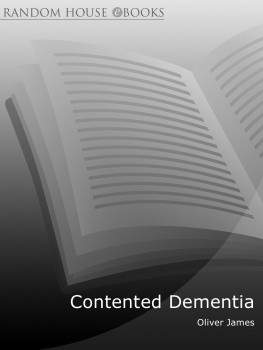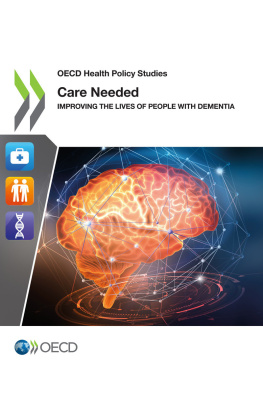First published 2014
Exisle Publishing Pty Ltd
Moonrising, Narone Creek Road, Wollombi, NSW 2325, Australia
P.O. Box 60490, Titirangi, Auckland 0642, New Zealand
www.exislepublishing.com
Copyright 2014 in text: Lee-Fay Low
Lee-Fay Low asserts the moral right to be identified as the author of this work. All rights reserved. Except for short extracts for the purpose of review, no part of this book may be reproduced, stored in a retrieval system or transmitted in any form or by any means, whether electronic, mechanical, photocopying, recording or otherwise, without prior written permission from the publisher.
National Library of Australia Cataloguing-in-Publication Data:
Low, Lee-Fay, author.
Live and laugh with dementia : the essential guide to maximizing quality of life / Lee-Fay Low.
ISBN 9781921966521 (pbk.)
Includes bibliographical references and index.
DementiaPatientsCareAustralia
DementiaHandbooks, manuals, etc.
616.83
Designed by Tracey Gibbs
Print ISBN: 978 1 921966 52 1
ePub ISBN: 978 1 77559 190 0
Version 1.0
Disclaimer
While this book is intended as a general information resource and all care has been taken in compiling the contents, this book does not take account of individual circumstances and is not a substitute for medical advice. Always consult a qualified practitioner or therapist. Neither the author nor the publisher and their distributors can be held responsible for any loss, claim or action that may arise from reliance on the information contained in this book.
Introduction: Use it or lose it
We exercise our bodys muscles to keep them strong, flexible and working well. Similarly, we need to keep exercising our mental muscles (our brain) to keep them strong, flexible and working well. We also need to keep exercising our relationship muscles (our social networks and friendships) to keep them strong, flexible and working well. This is what Live and Laugh with Dementia is all aboutstrengthening and maintaining the mental and relationship muscles of the person with dementia for whom you care. The engaging philosophy and the suggested activities in this book will, I hope, help you provide positive experiences for that person.
This book is based on my experiences working with people with dementia and their carers, and on scientific research. I am an expert on dementia in general, but the best expert on the person with dementia you are looking after is you, their carer. Therefore, this is not a manual for you to follow exactly to guarantee activities that will engage a person with dementia. I need you to add two key ingredients to the information in this book: your knowledge about the person with dementia and your creativity in selecting and modifying activities. The information you have about the persons individual abilities and interests will help you choose the activities that they will be interested in and enjoy, and will help you modify them so that they can participate in them. Using ideas and inspiration from the book, you will tailor activities for the person and how you present them in order to successfully engage the person with dementia.
Ive learnt from training professional carers that reflecting on personal experiences, writing down information about the person with dementia, and planning potential activities helps successfully create and implement activities. The worksheets included in this book should help you process and apply the information youve read.
I hope that in bringing pleasure to the person with dementia through activities, you will also derive happiness and satisfaction, and that through sharing smiles and activities, your relationship will continue to grow.
Case studies
The stories that I share with you in this book are based on real people, though their names and details have been changed. We will meet Joy, who sings enthusiastically even though she cant remember doing so afterwards. Then theres Brian, who smiles and laughs even though he cant express himself with words very well. Ruth gives her visitor a warm welcome cuddle even though she cant describe exactly who she is or how she knows her visitor. And Antonio talks animatedly even though he doesnt always make sense to others. Through the case studies we will see the ideas presented in this book put into practice.
Why engage people living with dementia through meaningful activities?
Research has shown that there are a number of good reasons to do this:
- Activities provide mental and physical stimulation, which can slow decline or improve mental function.
- Activities are pleasurable.
- Activities are a way to develop or maintain a relationship.
- Activities help stave off boredom.
- Activities distract from behaviours that are difficult for carers.
- Activities help the person with dementia maintain their self-identity.
Lets look at each of these points in more detail.
Activities provide mental and physical stimulation, which can slow decline or improve mental function
Scientists used to think that the number of brain cells, or neurons, we had at birth was the maximum number we could have, and as brain cells died the number decreased through life. We now know that we grow new neurons throughout life, and that these new brain cells, and the important connections between the cells (known as neural pathways), grow in response to experiences in life such as learning new things or living in a mentally stimulating environment.
Mental activity, or mental exercise, encourages growth of new cells and strengthens connections between cells in the brain. There is good research evidence that cognitive stimulation therapy (discussed in detail in Chapter 5) improves or maintains cognition at a level similar to that achieved with the currently available drugs for Alzheimers disease. This suggests that undertaking a variety of activities that use different mental abilities is good for people with dementia.
Physical activity, or physical exercise, builds and strengthens muscles of the body. It also seems to improve brain functioning, with a growing body of evidence suggesting that physical activity can improve memory and slow down cognitive decline in people with dementia. It seems that physical exercise can also stimulate neuronal growth, improving the neural efficiency of the brain, meaning that after exercise the brain uses less energy to do the same task. We think that physical exercise improves how well the brain runs. Physical activity may also have indirect effects on the brain by improving physical health. Physical exercise decreases blood pressure, cholesterol and depression, and reduces the effects of diabetes. All these health conditions are known to impact brain health.
Activities are pleasurable
Pleasure is the in-the-moment feeling of happiness in response to an external event, such as laughing with a child or relishing a piece of chocolate. Experiencing emotions is a fundamental part of being human, and happiness is one of the most basic emotions. It is the second emotion that babies express clearly through a smile at about six weeks of age, the first being distress or discomfort expressed through crying.
Experiencing pleasure is its own reward, but it is sometimes given a low priority. When we are busy caring for another persons medical and physical needs, it sometimes seems less important to spend time thinking about and organizing something that is enjoyable and fun. Remember that we also should try to look after their emotional needs, including needs for love, belonging and pleasure.


